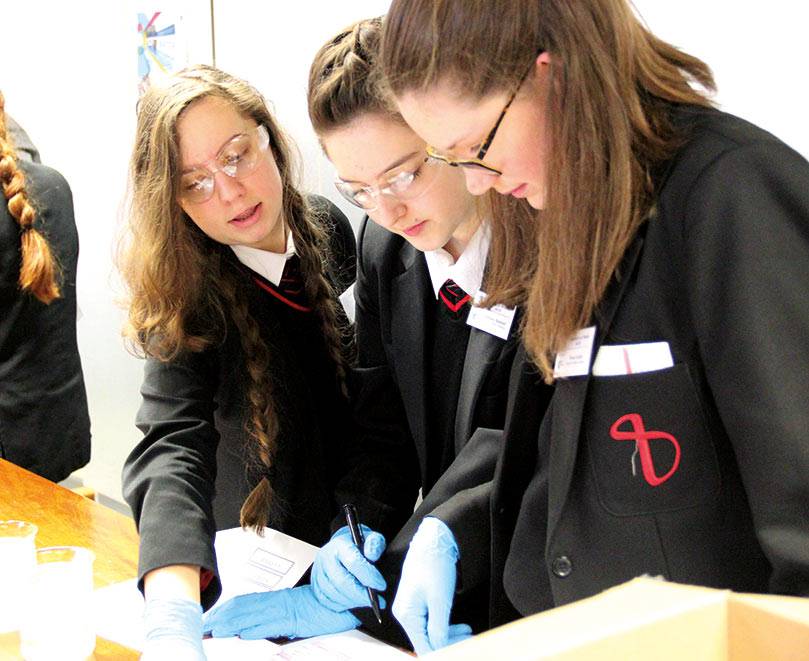The future of scientific study has been given a boost after more than 400 pupils from across Kent congregated at Benenden School for its first Chemistry at Work Day.
Run in conjunction with the Royal Society of Chemistry, the event was set up with the aim of inspiring students to further pursue the subject at university level.
It did this through a series of workshops, lectures and interactive presentations, each designed to showcase the relevance and societal importance of chemistry in everyday life.
These covered topics such as the science of art forgeries, pyrotechnics and the application of nanotechnology.
Speakers on the day included Dr Jonathan Hare, a well-known TV presenter on science and a contributor to the team who won the 1996 Nobel Prize for Chemistry.
Other experts in their field included lecturers from Imperial College London, Keele University and Bristol University.
Professionals from Vauxhall Motors, QinetiQ and the Society of Cosmetic Chemists also provided an insight in the applied world of Chemistry.
Benenden School headmistress Samantha Price said: “We are proud to have hosted the first Chemistry at Work Day at Benenden in association with the Royal Society of Chemistry.
“We are fortunate to have some wonderful Science facilities at Benenden and were delighted to share them with students from other schools.
“We all have a shared enthusiasm for Science and I hope that yesterday’s Chemistry at Work Day will prove to be the first of many such events.”
Schools that attended the event, held on December 3, included Cranbrook School, John Wallis Academy (Ashford), Chatham Grammar School for Girls, Tonbridge School and Tunbridge Wells Grammar School for Boys.
Chrissie Maitland, education co-ordinator at the Royal Society of Chemistry, said: “These are fantastic opportunities for young people to experience hands-on science and to talk to practicing scientists about the world of work.
“It’s interventions like this that can make a huge impact on a child’s career aspirations.
“At the Royal Society of Chemistry, we fund events like this across the country – and it’s always great to see the local enthusiasm from businesses, not to mention the joy that both the children and the scientists get from taking part.”
The programme:
The science of art forgeries, commercial painting of vehicles, rocket science, pyrotechnics, Insect communication, forensic science, the application of nanotechnology, the chemistry of cosmetics and perfumes, the carbon revolution and environmental chemistry.








